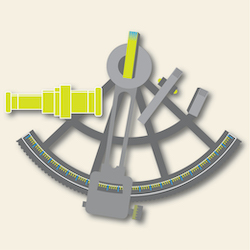
Meeting Up in the Spatial Turn: The Historical Geographies of Antonio Gramsci and a Few Others
Stefan Kipfer, York University in dialogue with Roberto Dainotto, Duke University
Antonio Gramsci has been subjected to a wide range of interpretations and appropriations. One way to return to Gramsci while developing his insights is to pay close attention to the historico-geographical aspects of his work, the way in which his multi-temporal conception of the world is mediated in and through space and scale to usher in what one could call a spatial historicism. Proceeding this way is to not only to bring the spatial turn of social theory to bear on Gramscian scholarship and, in turn, to ensure Gramsci has his proper place within what used to be called, in the English-language, radical geography. Accentuating Gramsci’s spatial historicism is also a way of organizing the terrain on which Gramsci may encounter others with whom his work resonates. One of these authors is Frantz Fanon.
Texts for discussion (email complit@northwestern.edu for PDFs):
Stefan Kipfer (2013) “City, Country, Hegemony: Antonio Gramsci’s Spatial Historicism” in: Gramsci: Nature, Space, Politics (Co-edited with Mike Ekers, Gillian Hart, Alex Loftus). London: Blackwell. 83-103.
Stefan Kipfer and Gillian Hart (2013) “Translating Gramsci in the Current Conjuncture” (principal author, with Gillian Hart) in Gramsci: Nature, Space, Politics. 323-344.
Stefan Kipfer teaches urban politics, urban planning and urbanization in the Faculty of Environmental and Urban Change at York University in Toronto. His research has focused on comparative urban politics and the place of space and urban questions in social and political theory, particularly in Marxian lineages (Antonio Gramsci, Henri Lefebvre) and counter-colonial traditions (Frantz Fanon). His work has been published widely in such journals as Historical Materialism, Studies in Political Economy, Socialist Register, Theory and Event, New Formations, Antipode, Society and Space, Urban Studies, Progress in Human Geography, Annals of the American Association of Geography. He is the co-editor of Reading Henri Lefebvre: Space, Difference, Everyday Life (with K. Goonewardena, C. Schmd, R. Milgrom) and Gramsci, Nature, Space, Politics (with M. Ekers, G. Hart, A. Loftus). His book Urban Revolutions: Urbanisation and (Neo-)Colonialism in Transatlantic Context will appear with Brill in 2022.
Roberto Dainotto is Professor of Literature, Italian and International Comparative Studies at Duke University. He has been Professeur invitè at the Universitè ParisOuest, and Fellow at the Stellenbosch Institute for Advanced Studies in South Africa. His main research and teaching interests hinge on the concepts of place and space as narrative, rhetorical, and geopolitical organizational categories. His publications include Place in Literature: Regions, Cultures, Communities (Cornell UP, 2000); Europe (in Theory) (Duke UP, 2007), winner of the 2010 Shannon Prize in Contemporary European Studies; and Mafia: A Cultural History (Reaktion Books, 2015). He has also edited Racconti Americani del ‘900 (Einaudi scuola, 1999), a monographic issue of Italian Culture on Giambattista Vico (2017), and co-edited with Fredric Jameson Gramsci in the World (Duke UP, 2020).
Cost: $0
Audience
- Faculty/Staff
- Student
- Public
- Post Docs/Docs
- Graduate Students
Interest
- Academic (general)